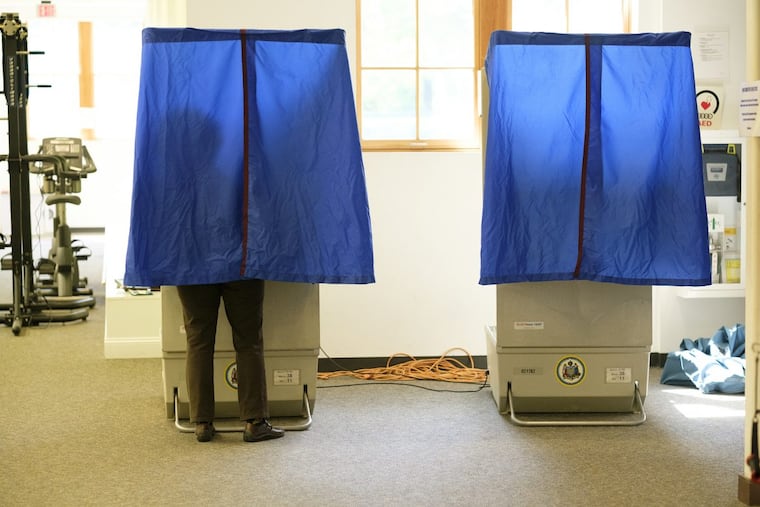Voter-fraud conspiracy theorists press on despite losses (and facts)
A nonprofit that traffics in voter-fraud claims has lost again in a federal case filed against the Philadelphia city commissioners. Don't expect that to be the end of it. There appears to be no end to voter-fraud conspiracy theories.

The lesson to be learned from studying voter-fraud conspiracy theorists is there will be no end to talk of conspiracies because the theorists can't bear to let them go.
Case in point: The American Civil Rights Union, a Virginia-based nonprofit that traffics in voter-fraud claims and lawsuits. The ACRU spent a year and a half suing the city of Philadelphia in a classic case of a solution in search of a problem.
The group took the Philadelphia city commissioners to federal court in April 2016, alleging that the National Voter Registration Act requires the city to remove from the voter rolls the names of people incarcerated for felonies in Pennsylvania.
Spoiler alert: No, it doesn't.
Don't take my word for it. U.S. District Judge C. Darnell Jones II said that in a ruling in September 2016. A month later, the ACRU appealed to the U.S. Court of Appeals for the Third Circuit. A three-judge panel on Sept. 25 upheld Jones' ruling.
The ACRU can still seek a hearing with all of the 22 judges on the Third Circuit, the next potential step before an appeal to the U.S. Supreme Court.
It's a burden for conspiracy theorists to let claims go when they've been told they are wrong.
Consider: Jones at one point during the case mulled hitting the ACRU with sanctions for what he deemed "an incorrect recitation" of federal voting law.
And the Third Circuit judges on Sept. 25 said "the ACRU is unable to present a plausible claim" that the city commissioners had to remove the names of incarcerated felons from the voter rolls.
The commissioners are following the law, not mangling it in ill-conceived legal moves.
The Pennsylvania Commonwealth Court ruled 17 years ago that incarcerated felons regain the right to vote when they are released from custody. They only lose the ability to vote while behind bars.
J. Christian Adams, the ACRU policy board member who filed the original lawsuit, suggested last year that felons could vote behind bars with absentee ballots smuggled into prisons like drugs and cellphones.
No, really. That was how spinny this conspiracy theory got.
And it keeps turning.
Linda Kerns, the local lawyer for the ACRU, said the group is mulling what to do next. And she added this seismic shift in her legal logic, claiming the commissioners were always permitted to remove the names of felons from the voter rolls.
But that's not what the ACRU claimed. It said the commissioners were required to do that.
Kerns declined to comment on her less-than-deft attempt to relocate the goal posts.
Instead, she expressed hope that U.S. Attorney General Jeff Sessions, another fan of voter-fraud conspiracy theories, would "get in the game" to take action against the commissioners.
Adams didn't respond to a request for comment about the Third Circuit ruling.
He's got a bigger platform to worry about these days. President Trump appointed him in July to his Presidential Advisory Commission on Election Integrity.
That's the commission Trump drew up in May to reverse-engineer some sort of proof for his claim that he lost the popular vote in the 2016 general election because of voter fraud.
Adams really sounds like Trump's kind of guy when it comes to the topic.